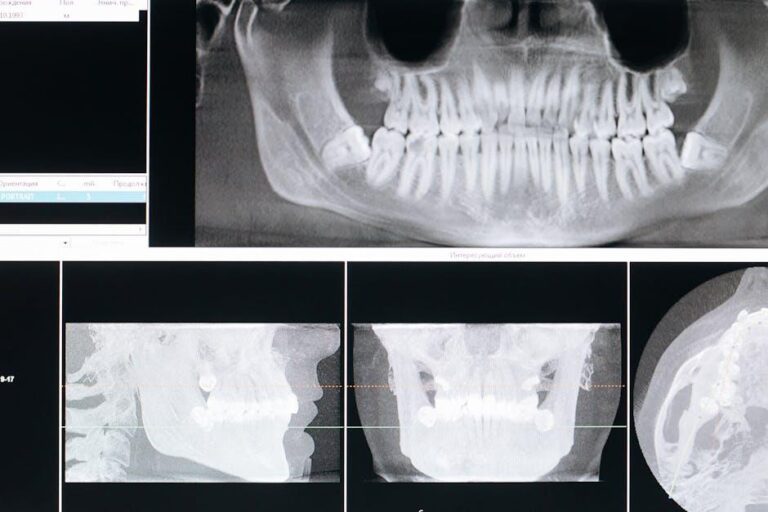
Poor Oral Health Potentially Linked To Chronic Health Problems – U.S. News & World Report
Good oral health is often viewed as a cosmetic concern, but emerging studies reveal a much deeper connection between oral hygiene and overall well-being. According to U.S. News & World Report, poor oral health may contribute to an increased risk of developing chronic health problems that affect millions of Americans.
The Mouth-Body Connection: Why Oral Health Matters
Your mouth is a gateway to your digestive and respiratory tracts, and poor oral hygiene can create a breeding ground for harmful bacteria. When these bacteria enter the bloodstream, they may trigger inflammatory responses that contribute to systemic diseases.
Several chronic health problems have been linked to oral health issues such as gum disease and tooth decay. Understanding these connections is crucial for prevention and early intervention.
Chronic Diseases Linked to Poor Oral Health
Here are some major chronic health problems potentially linked to poor oral health, highlighted by leading health sources including U.S. News & World Report:
- Cardiovascular Disease: Studies suggest gum disease may increase the risk of heart disease, clogged arteries, and stroke due to inflammation and bacteria affecting the cardiovascular system.
- Diabetes: Gum disease can make it harder to control blood sugar levels, worsening diabetes symptoms and increasing the risk of complications.
- Respiratory Infections: Oral bacteria can be inhaled into the lungs, potentially causing pneumonia and other serious respiratory conditions, especially in older adults.
- Pregnancy Complications: Poor oral health has been linked to premature birth and low birth weight due to bacterial infections triggering inflammation.
- Rheumatoid Arthritis: Inflammation from gum disease may exacerbate autoimmune diseases like rheumatoid arthritis.
Signs and Symptoms to Watch For
Early detection of oral health problems plays a vital role in reducing related chronic health risks. Watch out for these symptoms:
- Bleeding or swollen gums
- Persistent bad breath
- Loose or sensitive teeth
- Pain when chewing or swallowing
- Receding gums or exposed tooth roots
Table: Impact of Poor Oral Health on Chronic Diseases
| Chronic Disease | How Poor Oral Health Impacts It | Common Symptoms |
|---|---|---|
| Heart Disease | Inflammation damages arteries, increases clot risk | Chest pain, fatigue, gum bleeding |
| Diabetes | Inflammation hinders blood sugar control | Increased thirst, gum infections |
| Respiratory Infections | Bacteria from oral cavity infect lungs | Chronic cough, breathlessness |
| Pregnancy Complications | Inflammation triggers early labor risks | Premature delivery, low birth weight |
| Rheumatoid Arthritis | Oral inflammation worsens joint pain | Joint stiffness, gum soreness |
Benefits of Maintaining Good Oral Health
Investing in oral care goes beyond just a bright smile. Here are key benefits that demonstrate why oral health is fundamental to overall wellness:
- Reduced Risk of Chronic Diseases: Keeping gums and teeth healthy lowers systemic inflammation and bacterial invasion.
- Improved Nutritional Intake: Healthy teeth and gums aid in proper chewing and digestion, facilitating better nutrient absorption.
- Enhanced Self-Confidence: Fresh breath and an attractive smile promote social interaction and mental well-being.
- Lower Healthcare Costs: Preventing oral problems reduces expensive medical and dental treatments later.
Practical Tips to Improve Oral Health
Incorporate these simple habits into your daily routine to promote a healthier mouth and body:
- Brush teeth at least twice a day with fluoride toothpaste.
- Floss daily to remove plaque between teeth and prevent gum disease.
- Limit sugary and acidic foods that promote tooth decay.
- Visit your dentist regularly for professional cleanings and checkups.
- Avoid tobacco use, which greatly increases oral cancer risk and gum disease.
- Stay hydrated to maintain saliva flow, which naturally protects teeth.
- Manage chronic conditions like diabetes effectively, as they impact oral health.
Case Study: Linking Gum Disease to Diabetes Control
Research led by a major U.S. university found that patients with both diabetes and advanced periodontal (gum) disease experienced more difficulty managing blood sugar levels. Through intensive periodontal therapy combined with better oral hygiene, many participants showed improved HbA1c levels — an indicator of blood sugar control.
This study highlights the importance of oral health care as part of comprehensive chronic disease management.
Firsthand Experience: A Patient’s Story
“I always thought my bleeding gums were just a minor issue until my doctor told me it might be linked to my heart condition. After changing my oral hygiene habits and getting treatment, my overall health improved remarkably. It’s incredible how connected the body really is.”
Conclusion: Oral Health Is Essential for Long-Term Wellness
Poor oral health is more than an isolated problem—it can ripple through your entire body, potentially leading to serious chronic health issues. The findings featured by U.S. News & World Report underscore the crucial relationship between maintaining a healthy mouth and preventing systemic diseases.
By prioritizing consistent oral care and addressing symptoms early, you can protect not only your smile but your overall health. Remember, a healthy mouth leads to a healthier life.
Take action today: Schedule a dental checkup, brush and floss regularly, and stay informed about the latest research linking oral hygiene to chronic disease prevention.


